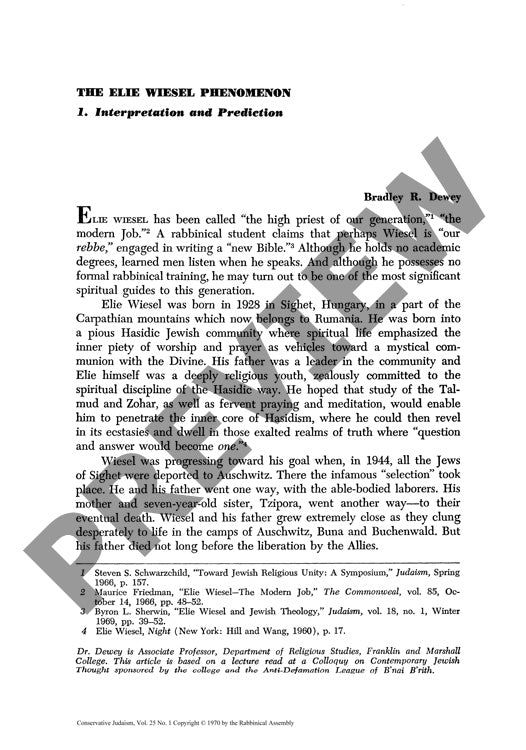The Elie Wiesel Phenomenon Interpretatio
Couldn't load pickup availability
From devout Hasidic youth to Holocaust survivor to influential theological voice, Elie Wiesel's spiritual journey unfolds across eight novels published between 1960-1969, revealing a profound wrestling with faith in the aftermath of atrocity. His works, functioning as thinly veiled autobiography, trace a developmental progression of theological thought centered on a searing question: how can one speak of God after Auschwitz? Through biographical-critical analysis, Wiesel's literary techniques emerge as powerful vehicles for exploring what he identifies as the central theological burden of the contemporary era. Recurring motifs of darkness, silence, and confinement chronicle his protagonists' transformation from initial rage against divine silence toward a tentative reconciliation with Hasidic spirituality and community. Beyond his well-known role as Holocaust witness, Wiesel's significance extends to his emergence as a theological guide addressing post-Holocaust Jewish faith. His nuanced navigation between faith and doubt particularly resonates with contemporary college generations seeking alternatives to both uncritical optimism and premature atheism in their quest for spiritual meaning. The research illuminates how Wiesel's literary legacy offers a sophisticated framework for engaging questions of faith in the shadow of historical catastrophe.

More Information
-
Physical Description
-
Publication Information
Published 1970
ISBN
-
Publication Credits
Bradley Dewey

